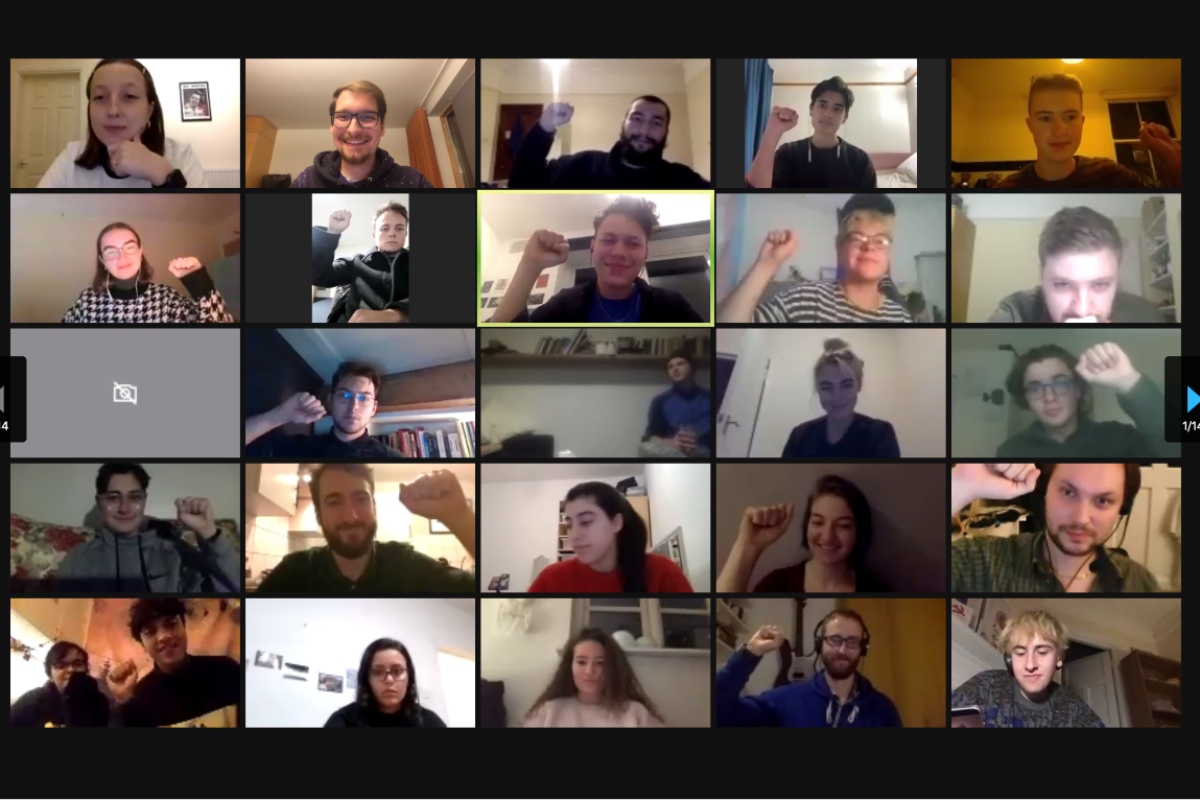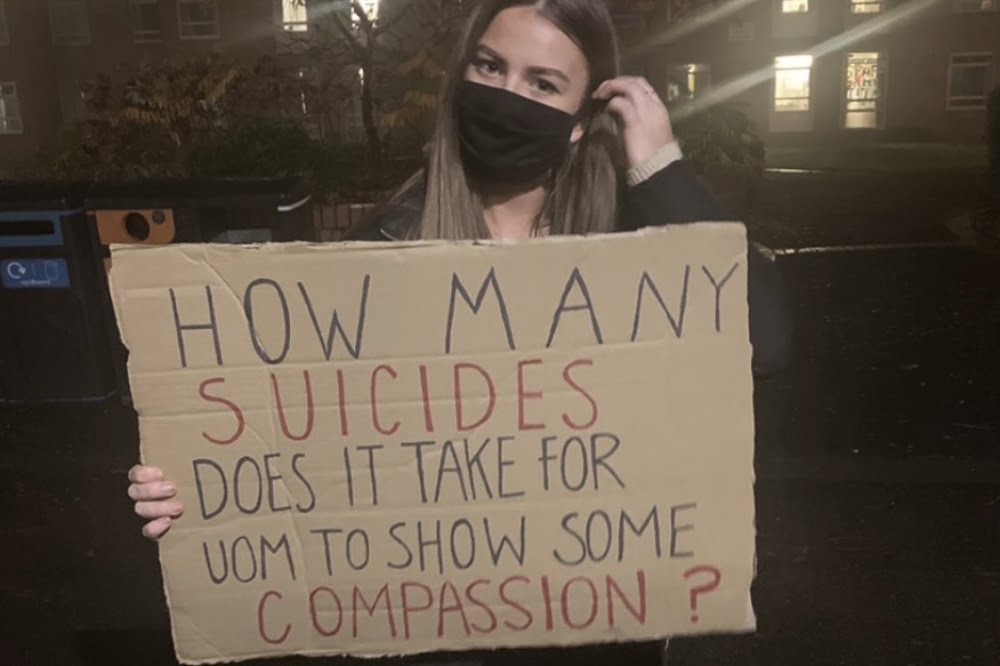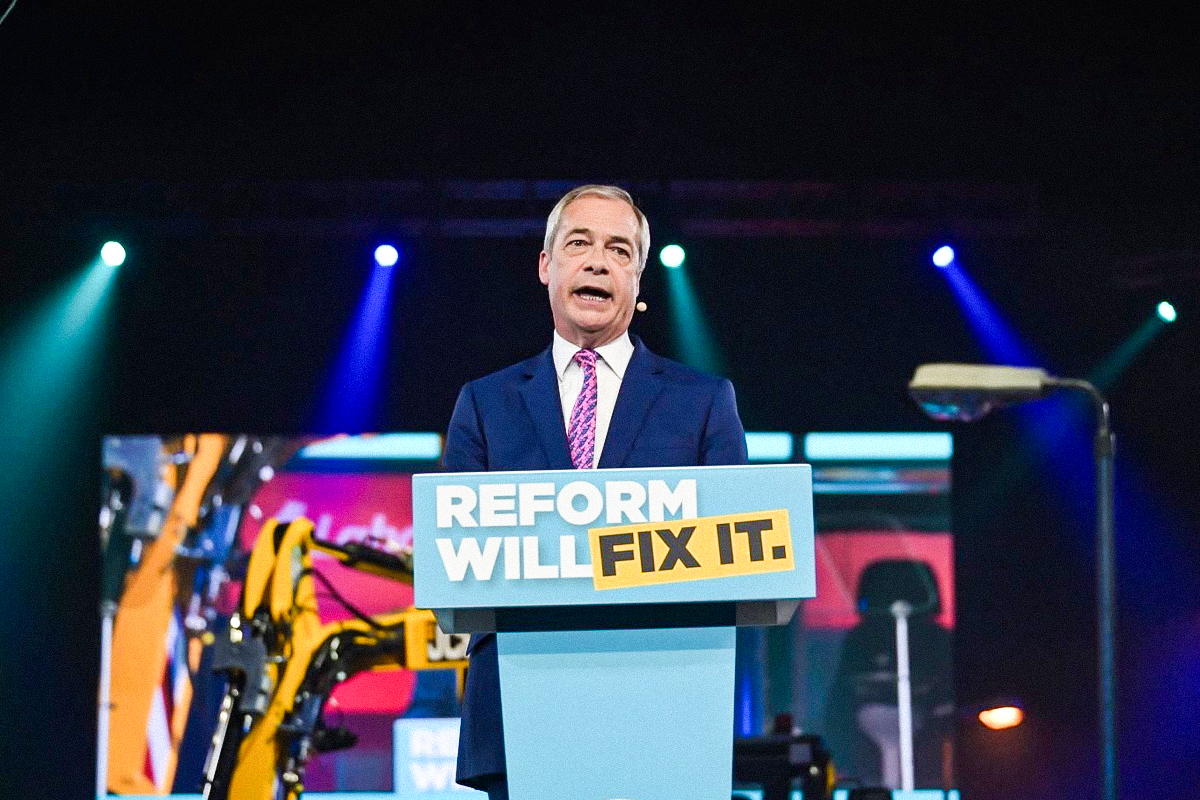The pandemic and lockdown conditions have led to an explosion of mental health issues in society, and particularly amongst young people. Palliative measures are not enough. To save our mental health, we need socialist solutions.
With the country back in another national lockdown, the mental health of many people will undoubtedly suffer. Students, in particular, are suffering, isolated in halls of residence, and offered little support from university administrators.
Already this semester, UK universities have seen over one student death per week, as reported by a recent article from The Tab. All of these tragic deaths were linked to mental health or drug use.
University bosses and the Tory government have pushed students back to campuses, in order to profit off of fees and rents. This comes at a time of intense social and economic crisis, when there are weeks-long waiting times for mental health services, and when costly private care is out of reach for most.
This lack of access to support and services is a direct cause of the mental health crisis amongst young people.
Marketisation and profit
The worsening mental health crisis is directly tied to the current crisis of capitalism. The stress caused by coronavirus has been intensified by the reckless actions of big business politicians, who have continually chosen to put profits before lives.
For example, the first lockdown was cut short in order to pressure people back to work and onto the high street. And government schemes such as ‘eat out to help out’ – designed to boost profits – have been linked to a fifth of summer coronavirus cases.
Similarly, lulling students back to campuses and into university halls is a decision that stems directly from the marketisation of education. This has undoubtedly wreaked havoc on the mental health of young people.
No future under capitalism
 But this mental health crisis precedes the pandemic. The poor quality and high cost of student housing; inadequate student loans; balancing part-time work with the stresses of university studies: all of these invariably lead to a worsening of mental health.
But this mental health crisis precedes the pandemic. The poor quality and high cost of student housing; inadequate student loans; balancing part-time work with the stresses of university studies: all of these invariably lead to a worsening of mental health.
Furthermore, what do students have to look forward to when studies end? A job market worse than the post-2008 period; zero-hour contracts and precarious work; spending half of your income on rent – and with upwards of £40k in student debt to boot!
Feelings of stability, empowerment, and contentment are vital to mental wellbeing. And these cannot be achieved within a capitalist system based on precarity, uncertainty, and an endless drive for profit.
The ruling class – and their mouthpieces in the media or academia – can no longer pretend that mental health problems are a mere result of ‘chemical imbalances’.
Palliatives and placebos
Yet what do students get to help them through this crisis?
Students are likely accustomed to receiving endless emails about mental health assistance during this crisis. We see a barrage of ‘self-care’ articles suggesting how we should keep our screen time down, take a bubble bath, or be nice to each other, in order to relieve stress, anxiety, and depression.
But all of these are just palliatives and placebos. The underlying causes of mental health issues cannot be solved by any of these so-called ‘solutions’.
Mental health funding has already seen 8% cuts year-on-year since 2011. After the pandemic, the NHS will be forced to pinch the pennies even more and make further cuts. Long waiting lists for limited ranges of therapy will become even longer. And private mental health services are also likely to see an increase in demand, as people look to skip waiting times. This will lead to prices becoming even more unaffordable.
Tragically, therefore, as the causes of the mental health crisis intensify, the means of solving them are diminishing in tandem. This creates a vicious cycle that plunges vulnerable young people even further into the abyss.
Rotten system
The only way to end the damage that capitalism inflicts upon our mental health is to end capitalism itself. Capitalism’s endless drive for profits over wellbeing cannot be fixed by this or that small change. The profit system cannot be made ‘kinder’ and ‘gentler’ and ‘nicer’.
We must demand fully-funded, publicly owned, and democratically-run mental health services – something that the crisis-ridden capitalist system cannot provide.
But even this is merely a sticking plaster on a gaping wound. To truly protect our mental health we have to fight to overthrow capitalism – to put an end to the crises, uncertainty, and insecurities that this rotten system creates.
Over 300 meet online to discuss capitalism and mental health
Owen Robinson, Cambridge Marxists
 On 5 November, Cambridge Marxist Society held an online meeting focused on the topic of ‘capitalism and mental health’. This was attended by over 300 participants, with an extraordinary 340 in the Zoom call at its peak!
On 5 November, Cambridge Marxist Society held an online meeting focused on the topic of ‘capitalism and mental health’. This was attended by over 300 participants, with an extraordinary 340 in the Zoom call at its peak!
Participants tuned in from countries across the world – from Sweden to Canada; from Iceland to Palestine; and across mainland Europe, from Spain in the West, to the Baltics and Turkey in the East.
This was by far the largest meeting the society has ever held, aided by the online format, which allowed an international audience to attend and discuss such an important issue.
The huge turnout reflects the growing understanding among youth worldwide that capitalism and its crises are responsible for the growing prevalence of mental health issues, particularly amongst young people .
Capitalism to blame
The meeting began with an introductory talk by Hasan Wright, an activist with the Cambridge Marxist society.
Hasan provided an in-depth analysis of the current mental health crisis and its relation to capitalism. He cited shocking national and global statistics illustrating the scale of the crisis, and explained how these have worsened even further as a result of the COVID-19 pandemic.
For example, the figure that up to 10 million people in the UK will require direct mental health support as a result of the pandemic was particularly concerning.
Moving on, Hasan spoke of how this crisis is evidently and unavoidably rooted in the material and environmental conditions of the capitalist system.
Austerity; cuts to mental health services (especially when these services are needed the most); competition; the prioritisation of profit over wellbeing; the dull and uncreative nature of many jobs; and the ‘proletarianisation’ seen in society: all these were provided as factors behind the rise in mental health conditions across the globe.
Hasan made abundantly clear how capitalism and its exploitative dynamics are central to this crisis. This is only further emphasised by statistics that welfare recipients in the UK are 2.5 times more likely to have a mental disorder; and children born into the lowest household income percentile are 4.5 times more likely to experience a mental health problem.
We see that, unsurprisingly, those who experience the brunt of capitalism’s brutality are also those most vulnerable to the mental health problems that it provokes.
Fight for revolution

There were a number of engaging and informative contributions from both more experienced comrades and those who were less experienced but keen to discuss and learn more.
These discussions provided a particularly effective platform to promote Marxist ideas to a wider audience. In the final part of the meeting, all participants regrouped to summarise the diverse exchanges that were had.
The meeting ended by emphasising the need for organised struggle in the fight to overthrow capitalism. Participants were firmly encouraged to get involved in the fight for socialism – wherever their location – by joining the International Marxist Tendency.
Only by building the forces of Marxism and fighting for revolution can we save our mental health from the destructive capitalist system.






